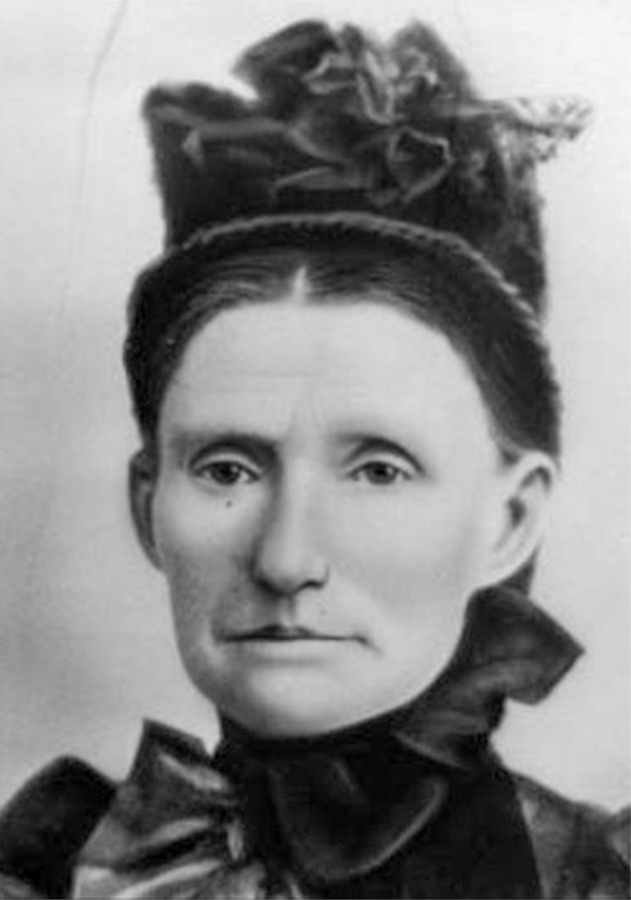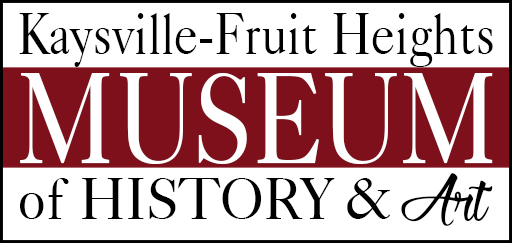Ada Mazilla Evans Williams

1838-1923
Ada Mazilla Evans Williams (1838-1923) emigrated from Wales in 1853 and traveled on to Kay’s Ward the following spring with her family and returning missionary, Ebenezer A. Williams. She became Williams’ wife in 1856 and by whom she had five boys and five girls. After living a few years in town, they became some of the first settlers on the Mountain Road where they build a house of adobe brick and an expanded farm; the property had belonged to Ada’s grandmother. Later she moved her family back into town. She became a skilled milliner, both bonnets and “fancy hats,” selling her hats in the Williams Mercantile establishment. “Ada is credited with opening the first millinery shop in Kaysville. She first sold her hats out of her home by order and then when her husband opened his hardware business. Ada’s hats were displayed and sold from a space in one corner of the store. …(Sanders)” The second floor of this building became known as the Williams Hall where people of Kaysville held dances, balls, political meetings, parties, classes and other entertainments. Ada often hosted meetings and was “instrumental in keeping the space a popular meeting place. She was a teacher in the Kaysville Relief Society when that was first organized in 1871 and later, she served as counselor in said Society for about fifteen years. She was the first president of the Y.L.M.I.A. of Kaysville, and for a few years acted also as president of the Suffrage Association of Kaysville. She has been president of the Columbian Club and vice president of the Suffrage Association in Davis County, becoming friendly with Eliza R. Snow, general president of the Relief Society. (LDS Biographical Encyclopedia) She was a financial contributor to the building of the Ladies Aid Society Hall. Her good friends in charitable work was Sarah Barnes Layton, Ann Barnes Smith and Mary Ann Hyde. She along with friends took up the call to make Utah self-sufficient. Louisa Egbert, Jane Blood, Elizabeth Graham, Jane Bodily, Sarah B Layton, and Josephine Rose planted a mulberry tree and raised silkworms. Some of the silk thread grown in Kaysville was sent to Farmington to be woven by Joseph Hadfield.
